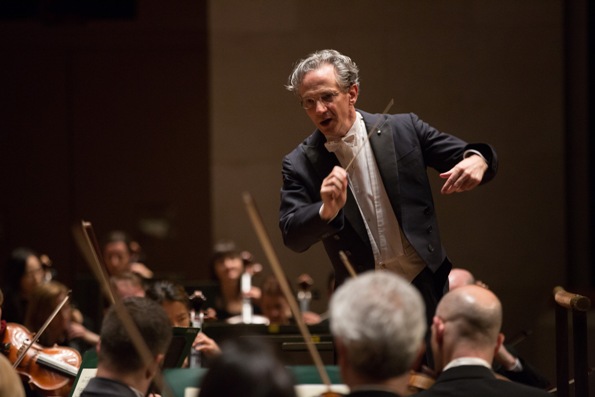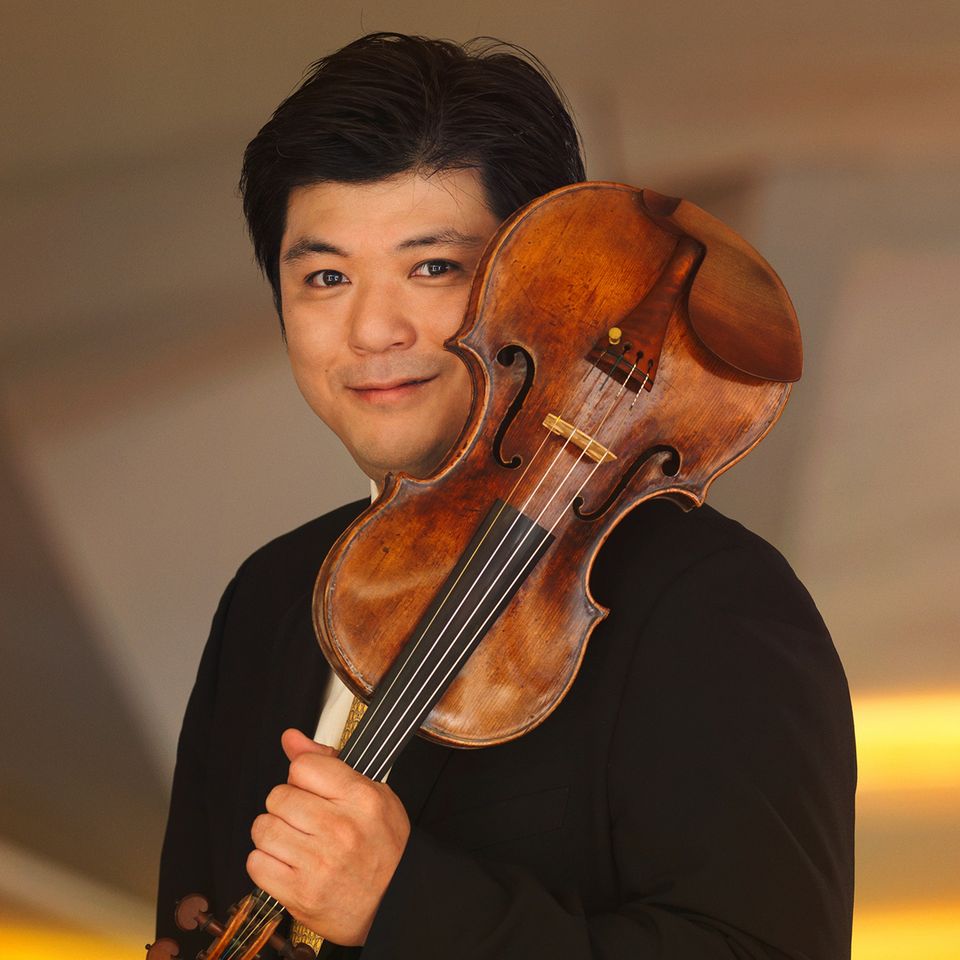Luisi, Dallas Symphony deliver a devastating “Pathetique”

The Meyerson Symphony Center was nearly full Thursday night as Fabio Luisi and the Dallas Symphony Orchestra opened this weekend’s concert program. A curation of Still, Bruch, and Tchaikovsky, led by the DSO music director with guest violinist Daishin Kashimoto, made for an evening of exquisite music making that exemplified the DSO’s technical and artistic prowess at its finest.
William Grant Still’s Poem for Orchestra opened the evening. Composed in 1944, World War II is manifest in this music as Still endeavors to imagine a world as it is undergoes a spiritual rebirth, following a period of darkness, despair, and destruction. Often referred to as the “dean” of African-American composers, Still blends jazz, blues, and spirituals with the expansive scope and design of European post-Romanticism.
Poem for Orchestra offers this blend in detail. A bold and turbulent opening exclamation shifted expertly into lush string passages and flittering flute calls. Luisi, sparing no sense of drama in his podium style, led the orchestra through wild, blustering dissonance that shifted beautifully into soft, tuneful moments of levity. One moment spry, then angsty the next, the piece constantly shifts between moods of dark and light, which the DSO managed convincingly before closing the 14-minute piece on a powerful yet unsettling final chord.
Max Bruch’s Violin Concerto No. 1, the work for which the Austro-Hungarian composer is best-known, followed with Kashimoto as soloist. The work garnered immediate popularity when premiered in its final form in 1868, with virtuoso Joseph Joachim as soloist and the work’s dedicatee.

Kashimoto was simply masterful in his rendering of the material–as one might expect from the first concertmaster of the Berlin Philharmonic Orchestra. His presentation was a demonstration in technical precision, with moments of unbridled brilliance throughout. The first movement highlights the soloist with a near immediate exclamation of double stops—a display of Kashimoto’s skill right out of the gate—as the prelude softened into a melancholy mood.
His wrenching lyricism and clear melodic line gave the Adagio all the passion and pensiveness it needed, executing great sweeping arpeggios in tandem with the ensemble, before fading into a tense silence. The final movement was a return to frenzied bravura, yet Luisi and the DSO maintained tight cohesion and even texture in coordination with the soloist. Together they barreled through the temperamental dance-like figures that raced toward a fiery finish.
The second half of the program was devoted to Pyotr Il’yich Tchaikovsky’s Symphony No. 6, the “Pathetique.” Tchaikovsky once said of the work that it did have a program, but “let him guess it who can.” In the composer’s original sketches, he had written that the plan for the symphony is “life.” And, while he was a deeply troubled man, it would later be understood that Tchaikovsky’s final symphony is a reflection of himself—a man at last complete—master of symphonic work and idiom, and more importantly, a master of his own emotions.
From the brooding solo bassoon presentation of the dark main theme, the DSO’s performance Thursday night was among the finest and most compelling performances of the piece in recent memory. Luisi’s deft direction of dynamic shifts brought forth the score’s emotive depth in grand, rolling gestures, and the ensemble responded with keenly focused playing. Evenly layered swells of orchestral textures throughout were thrilling as quick tempos tossed the fragmented thematic material from instrument to instrument, all executed with fine finesse and polish.
The middle movements offered more of the unexpected, subverting traditional form with a graceful dance figure characterizing the second movement and the defiantly climactic march-like Allegro molto vivace in the third. The lamenting finale rang almost as a requiem with a dark, tolling climax. The DSO showed true artistry and musicianship here, smartly in tune with the material’s intended effect, before ending on a tragic and devastating pianississmo.
The program will be repeated 7:30 p.m. Friday and Saturday. dallassymphony.org